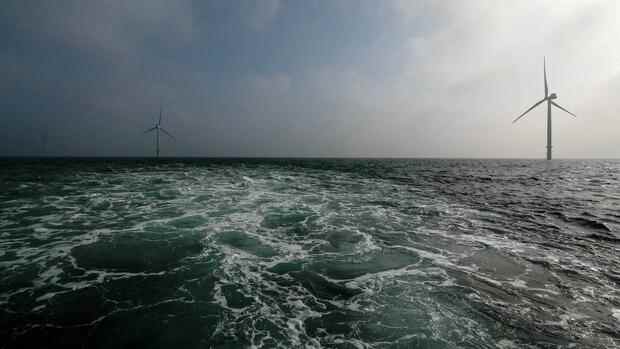The US Securities and Exchange Commission wants to regulate sustainable investments more closely.
(Photo: Reuters)
new York After the ever louder criticism of allegedly sustainable investments, the US Securities and Exchange Commission now wants to take a closer look at the booming investment branch. On Wednesday afternoon local time, the authority presented its proposals with which it intends to regulate investment funds more closely when it comes to implementing so-called ESG standards.
ESG stands for “Environmental, Social and Governance”, in English: “ecological, social and well managed”. In the future, funds should have to prove that their sustainable investments actually meet these criteria. The SEC wants to regulate more strictly from when investments may bear the designation “ESG”. Among other things, the supervisory authority requires that at least 80 percent of the investments must meet the ESG requirements. In the course of this, it should also be shown how high the total CO2 emissions of the companies in which the funds have invested are.
The new standards are intended to create more clarity for investors who want to invest their money in accordance with ESG criteria – because social and ecological sustainability is becoming increasingly important for many investors.
The business with sustainable investments is booming. In the past three years alone, the assets of such funds have tripled to $2.7 trillion worldwide, according to data from the analysis firm Morningstar. Almost every fund house would therefore like to appear as “green” as possible in its investment strategy – in the hope of a new, lucrative business. But the supply of truly green and social stocks, according to critics, is much lower than the demand.
Top jobs of the day
Find the best jobs now and
be notified by email.
Recent scandals have shown that some investments are not as sustainable as they are made out to be. Deutsche Bank subsidiary DWS was also accused of greenwashing by a former employee – a case that is being investigated by the SEC, among others. DWS rejects these allegations.
SEC established task force on ESG
The SEC set up its own “Climate and ESG Task Force” more than a year ago. It is intended to take proactive action against abuses in investments marked as ESG investments. This month, for the first time, this task force cracked down on two vendors: Brazilian miner Vale and investment advisor BNY Mellon.
Vale accuses the SEC of misrepresenting the safety of its dam, which later collapsed, in its ESG-related disclosures. BNY Mellon and the SEC, meanwhile, have agreed to pay a $1.5 million fine because the investment adviser pretended to “apply ESG quality control to all of its investments, when it didn’t,” the regulator said to.
The EU has already created new rules for the classification of investment funds. For a good year now, providers of investment funds, among other things, have had to classify their products into three categories with different sustainability requirements. In addition, the EU uses its taxonomy to define certain economic activities as sustainable with regard to climate goals.
With some delay, the SEC now also wants to enforce clear standards. “It is important that investors have consistent and comparable disclosures about fund managers’ ESG strategies so they can understand what data funds’ claims are based on and make the right investment choices for them,” commented SEC Chairman Gary Gensler the new proposals.
Republicans oppose the SEC regulating ESG criteria. They see ESG investments as an instrument for pushing through a left-wing political agenda. This accusation came recently from Tesla boss Elon Musk after the e-car pioneer was dropped from the S&P ESG index, although the oil company ExxonMobil is still listed there.
The financial industry now has 60 days to comment on the SEC’s proposals. Then the responsible body will definitely determine the rules in a second vote.
More: Chemicals and steel are driving their transition to green technologies and energy. But the concentrated regulation threatens to overwhelm many companies.
